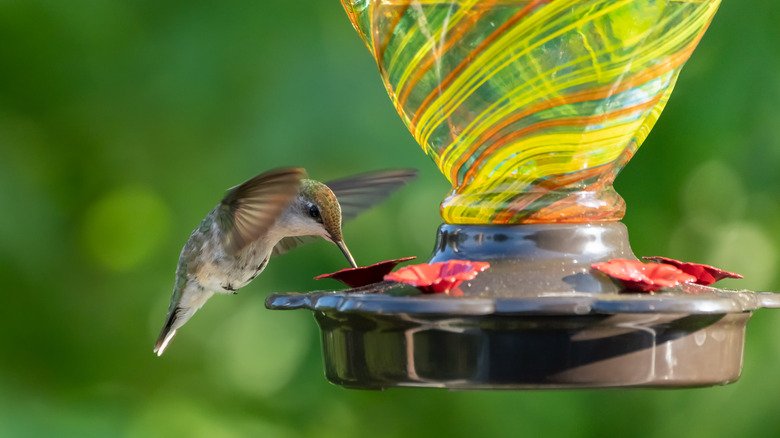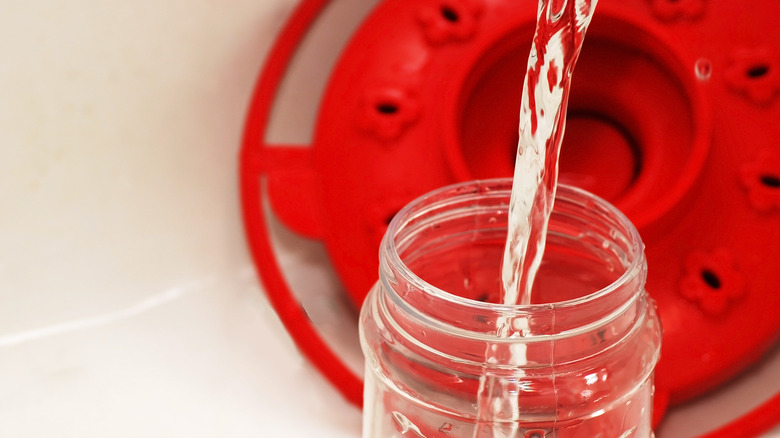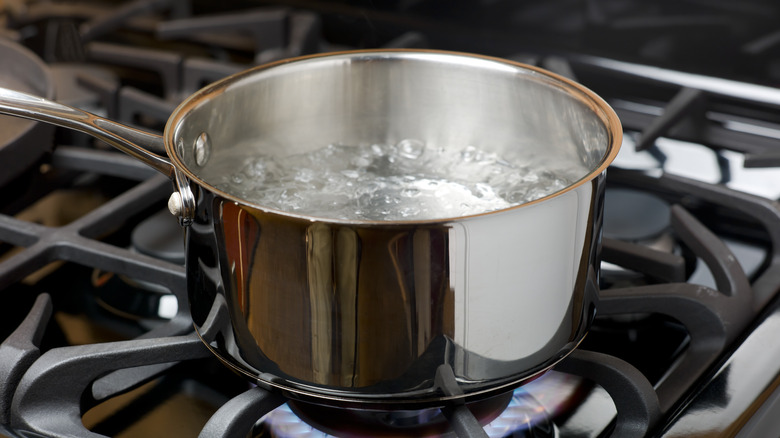Do You Have To Boil Sugar Water For DIY Hummingbird Nectar?
We may receive a commission on purchases made from links.
Have you been purchasing store-bought hummingbird nectar for your feathered visitors? Homemade hummingbird nectar is so surprisingly easy to make that it's silly to purchase an expensive mix. Just boil some water, add sugar, let it cool, fill the feeders, and await the feeding frenzy!
Maybe this all sounds great, but you think boiling water is too much trouble. Maybe it's too hot outside to even think about boiling water or your hummers have been going through the nectar unusually fast. Is boiling the water for your do-it-yourself hummingbird nectar always necessary?
The good news is you don't have to heat up a pot of water to make your hummingbird nectar; hot tap water will do just fine. But are there advantages of doing one method over another besides saving time and keeping your kitchen cool? The short answer is yes.
So when is boiling the water favorable over using hot water? It depends on several factors that we'll discuss below. But first, let's talk about why it's okay to not boil your sugar water for hummingbird nectar.
Why boiling your sugar water is unnecessary
Simply put, you don't need to boil the water for your hummingbird nectar because the same ratios of sugar to water stirred into hot tap water will satisfy hummingbirds safely. You may want to add slightly less water to a boil-free method, though, since there won't be liquid loss through steam.
If you're in the middle of a heatwave or your winged guests go through the nectar extremely quickly, you may find that changing your hummingbird nectar daily is a good idea. Not having to boil water will make this much easier.
Also, the finer the sugar, the easier it will be to dissolve without high heat. Superfine sugar is a great candidate for heat-free nectar making, but make sure to purchase a brand that doesn't mix in unwanted ingredients. Never use powdered sugar as most brands contain cornstarch. A great candidate for nectar-making is C & H Baker's Sugar ultra-fine sugar ($34.99 for a 3-pack on Amazon). Additionally, be sure to only use table sugar. Honey can be very dangerous for hummingbirds since bacteria and fungi may flourish when it is diluted in water.
Finally a word about water. Use regular tap water or bottled spring water only as distilled is lacking in minerals. Also, if you have a water softener, avoid using tap water since the treatment process can add salts and minerals.
When you might choose to boil your sugar water anyway
So, if it's okay to use hot tap water, why would you want to boil the water? If you've ever stirred a spoonful of sugar into iced tea, you're familiar with the eternity it takes for the granules to dissolve. You may have forgotten the specifics from science class, but the hotter the liquid, the more quickly solids will break down. Bringing the water to a boil will speed up the sugar's integration into the liquid.
Boiling the water can be extra helpful in the spring and fall when richer nectar gives birds extra energy for their cross-continental journey. During hummingbird migration, you can fortify the nectar with a higher ratio of sugar to water; try a 3:1 water-to-sugar mix. Yet, the higher amount of sugar is harder to dissolve in the same amount of water. Mixing up this extra-sweet formula is no problem when you add it to high-temperature water. The higher the water's temperature, the faster it will dissolve, and boiling water makes short work of the task.
Also, not to add extra anxiety to you backyard birders, but nectar that spoils poses health threats for hummingbirds. Using boiling water can keep the nectar from fermenting as quickly. The potential harm to hummingbirds that old food can pose may be motivation enough for you to bring the water to a boil. Also, by keeping your hummingbird feeder cool in hot weather, you can slow the inevitable spoiling. Ornithologists at Cornell Lab also recommend using boiling water if you make large batches to store in the fridge.


